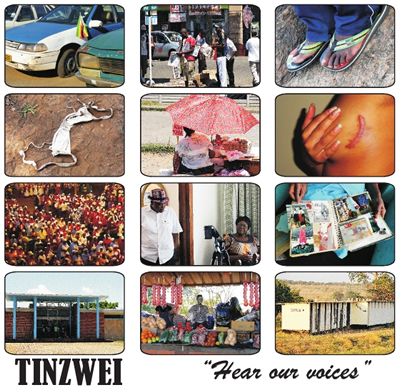Jobs in Zimbabwe: governance officer
Monday, December 12th, 2011 by Bev ClarkWork in and for Zimbabwe. Help grow our nation. Check out the vacancies below. If you’d like to receive this sort of information, as well as civic and human rights updates, by email each week drop us a note saying “subscribe” to info [at] kubatana [dot] net
Please note that the job vacancies we carry are related to the NGO and civil society sectors only.
Diocesan Coordinator /Governance Officer: The Catholic Commission for Justice and Peace in Zimbabwe (CCJPZ)
Deadline: 16 December 2011Based in Gweru, Gweru Diocese, Zimbabwe
One year placement (with the possibility of renewal based on performance)Please note that for this placement we are only able to consider applicants who are fluent in English, Shona and/or Ndebele.
The Diocesan Coordinator/ Governance Officer will work with the Catholic Commission for Justice and Peace in Zimbabwe (CCJPZ). S/he will strengthen the diocesan CCJP in promoting public education and facilitating the engagement of members of the Catholic Church in promoting accountable and responsive governance at the local and national level. The DC/GO will also facilitate the design and implementation of trainings for church leaders, to enable them to carry out similar trainings and lead dialogue on governance issues at the diocesan and parish levels.
The successful candidate should have a Master degree level qualification in Law, Political Science, International Relations, Public Administration, Development Studies, Social Sciences, or related fields.
A minimum of three years’ experience of advocacy work as well as relevant work experience in national policy reform issues are essential, as are previous experience working with, NGOs/faith based organisations in an organisational development capacity; developing and delivering training materials and group sessions/workshops on the themes of this placement, and working with the Catholic Social Teachings.
You should have a sound understanding of the Catholic Church structures and its Social Teachings; the fundamentals of good governance and human rights as development issues; capacity building techniques and methods, with the ability to share skills/mentor staff, and an understanding of gender implications in programme design and management
Maturity, sound political judgement, negotiation and mediation skills, and the ability to work and act under pressure and with discretion in a politically sensitive and rapidly evolving environment; effective interpersonal, communication and networking skills, and an ability to promote good working relationships; excellent research and analytical skills; excellent project management, self-organising and prioritising skills, and the ability to explore potential donors for governance-related work and to support fundraising efforts are also key.
You also need to have initiative and proactivity; excellent command of both spoken and written English; a preparedness to work and engage with people from different Christian denominations with a variety of theological backgrounds and understandings, and demonstrable commitment towards the aims and objectives of CCJPZ.
It is essential that you complete the application form in full, as very specific information is required and will be used to decide whether or not you will be short-listed for an interview.
Please note that CVs/resumes and certified copies both academic and professional qualifications must accompany your application.
For further information and form email: natdirccjjp [at] zcbc [dot] co [dot] zw
Closing date: 16 December 2011
Interviews: Week of 19 December 2011Please return the completed application form to: natdirccjp [at] zcbc [dot] co [dot] zw
CCJPZ is an equal opportunity employer and female candidates are encouraged to apply. The Diocese has the right not to appoint anyone to this post.










